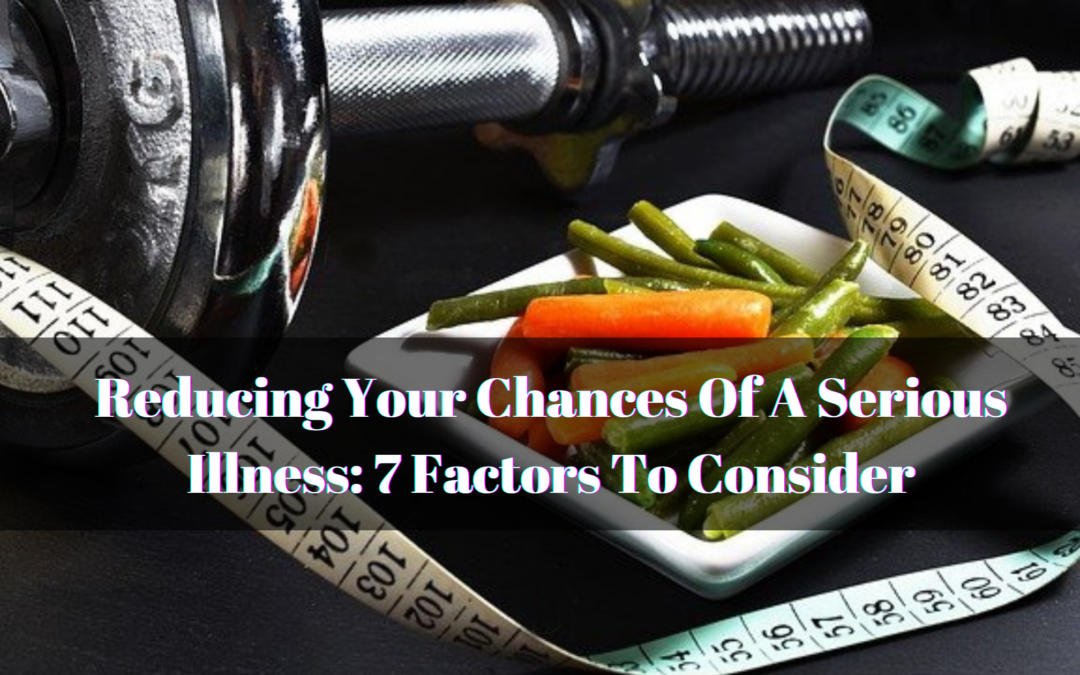While the research on cancer is still ongoing and there is much left to learn about the disease, science has made strides in ascertaining some of the causes of cancer. Cancer can be unpredictable, but there are ways you can reduce your chances of contracting a severe illness, as well as steps you can take to improve your prognosis if you are diagnosed with cancer.
Many of the factors you need to consider will not only help you reduce your risk of cancer but will also help you to stave off other serious diseases, which will boost your chances of living a longer and healthier life. In our guide, we cover the main factors you should consider in order to reduce your chances of a serious illness and how to monitor your body in order to catch cancer at the earliest opportunity for a positive prognosis.
Cancer Screening
Regular cancer screening tests are the ideal way to catch some cancers early while they are relatively small and easy to treat; some screening tests such as those for cervix or colon cancers can pick up precancerous cells and treat the problem before it becomes cancer. You can begin the conversation about cancer screenings with your doctor by discussing your risk factors or concerns to decide what the best course of action is for you.
Many people choose to undergo a full body MRI scan for cancer as it is an effective way of looking at multiple parts of your body in one go and can provide you with the best chance of catching many cancers early. If this type of screening sound more preferable to you than undergoing multiple appointments to screen section of your body individually, check out Ezra’s full body cancer detection.
Smoking
Over the years, it has become common knowledge that smoking comes with tremendous health risks as tobacco is the single largest avoidable cause of cancer globally. It dramatically reduces your life expectancy and is the leading cause of 480,000 premature deaths every year in America. Smoking is an addictive habit, and it can be challenging to quit; however, if you give up smoking, you will significantly reduce the likelihood of contracting bladder, kidney, stomach, lung, and pancreatic cancers. If you need help making a change, there are plenty of tobacco treatment programs available to assist you on the journey to quitting smoking and reducing your chances of a serious illness.
Weight
If you’re overweight, you increase your risk for developing many cancers such as breast, endometrium, colon, kidney, pancreatic, and esophagus cancer. However, you can control your weight with regular exercise and a healthy diet. If you aim to keep your body mass index, or BMI, within a healthy range, you can significantly reduce your risk of cancer as excess body fat triggers your body to release certain hormones, which could cause cancer growth.

Diet
Research has found the eating a balanced diet with a variety of vegetables, fruits, and whole grains with fish or poultry if your dietary restrictions allow it, reduces the risk of developing cancer. Whereas consuming processed and red meat has been linked with an increased chance of contracting certain cancers. Foods rich in phytochemicals, which are compounds that assist with protecting against cell damage, such as fruits, vegetables, beans, and whole grains, are ideal additions to your diet to reduce the chances of severe illnesses.
Exercise
Being active lowers the chance for obesity and helps to regulate your hormones which means that those who exercise regularly are less likely to develop cancer than those who are more sedentary. The best way to help reduce your risks of health issues is to remain active throughout the day; for example, take a short walk halfway through your workday or get up and move around if you’re watching TV for extended periods of time. Including a regular workout in your daily routine will not only reduce your likelihood of contracting cancer but will improve your overall health.
Sun Exposure
Many people enjoy soaking up the sun, but the UV rays can change the DNA of cells, leading to cancerous skin growths. In order to minimize your risk of cancer, it’s vital that you wear sunscreen with an SPF of 30 or higher and stay in the shade during the time of day where the sun’s UV rays are at its strongest, which is between 10 am and 2 pm.
Vaccinations
Certain vaccinations are the best way to protect yourself from cancers; for example, the HPV, or the human papillomavirus, increases the risk in women for cervical cancers as well as other genital cancers, and hepatitis B has been linked as a cause for liver cancer. The vaccines for HPV and hepatitis B can prevent you from contracting these viruses, which will decrease your risk of developing the cancers linked to them.
P.S: – If you enjoyed the article, please put down your thoughts in the comment section below. Also, for more online learning opportunities, please join our EAT Community, where you’ll find hundreds of videos from world-class teachers.



